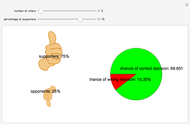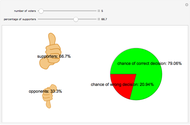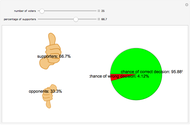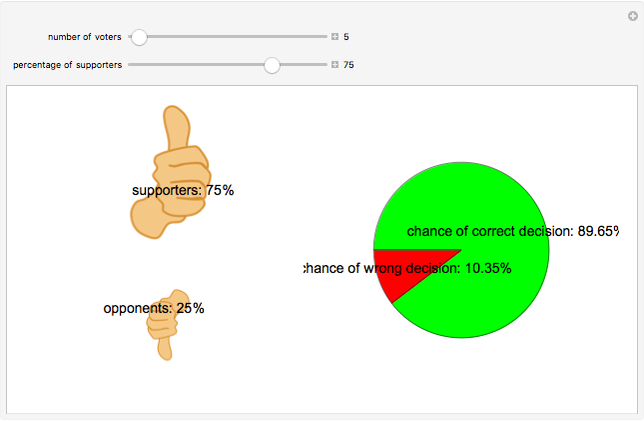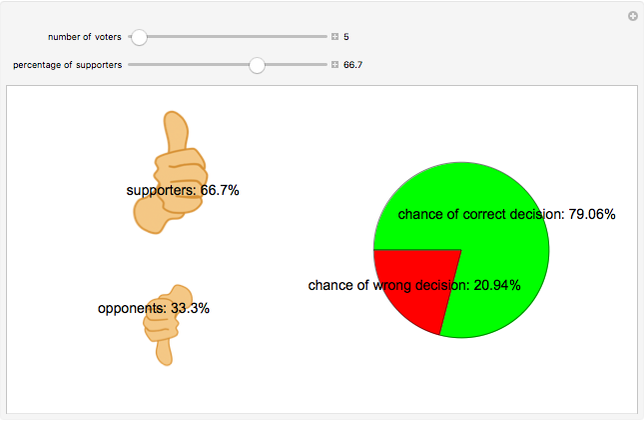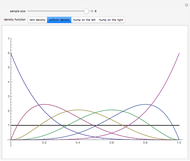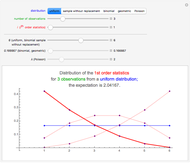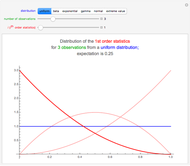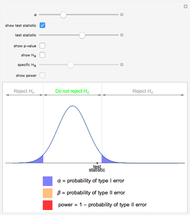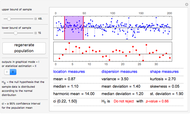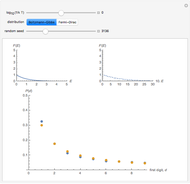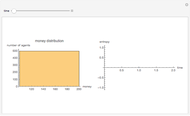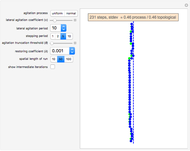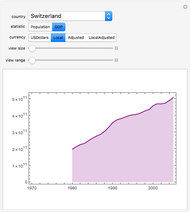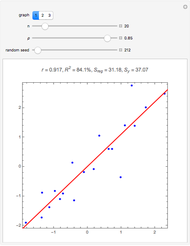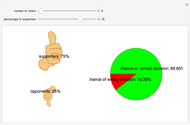Statistical Justification of a Representative Democracy

Requires a Wolfram Notebook System
Interact on desktop, mobile and cloud with the free Wolfram Player or other Wolfram Language products.
This Demonstration shows that in an idealized representative democracy, in which representatives vote randomly with the probability of a representative voting in favor of something equal to the proportion of the population in favor of something, it is unlikely that the the majority of representatives vote one way if the majority of the population favors the other. By changing the percentage of population support and the number of representatives, you can see the odds of the correct decision (one supported by at least 50% of people) being made in a majority vote. Each representative's vote is a Bernoulli trial, and the results assume that all representatives vote independently of one another. It can be seen that even with only a few dozen representatives, the majority preference among the representatives is very likely to be the same as the majority preference among the population.
Contributed by: Mitchell Roberts (February 2014)
Open content licensed under CC BY-NC-SA
Snapshots
Details
Clip art from openclipart.org.
Permanent Citation
"Statistical Justification of a Representative Democracy"
http://demonstrations.wolfram.com/StatisticalJustificationOfARepresentativeDemocracy/
Wolfram Demonstrations Project
Published: February 28 2014
